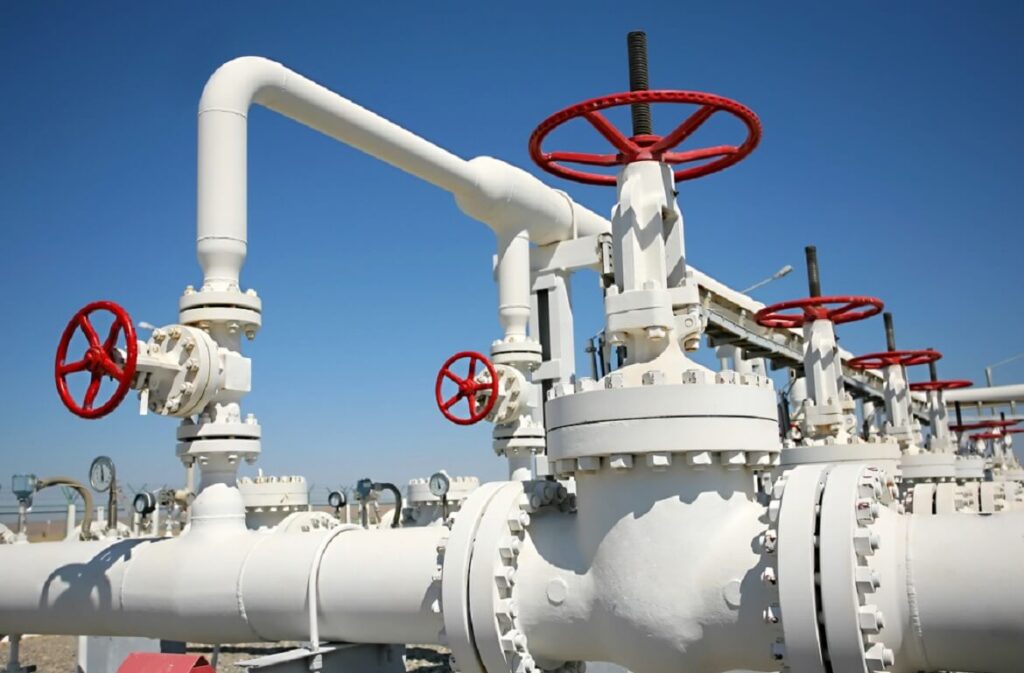World Geostrategic Insights Interview with Eser Özdil on the Turkey-Azerbaijan agreements on Turkmen gas, whether Turkey is becoming the new key player in the energy geopolitics of Europe and Eurasia, and why Iran was excluded from the agreement on the Turkmen gas transit route.

Eser Özdil is the founder and managing director of GLOCAL Consulting, Investment & Trade, which advises major energy companies on public policy, government relations, commercial diplomacy, strategy and business development. Between 2012 and 2020, he served as Secretary General at the Petroleum and Natural Gas Platform Association (PETFORM) based in Ankara, one of the most influential sector organizations in the Turkish oil and gas industry. In addition to his business activities, Özdil recently joined the International Visitor Leadership Program (IVLP), the global public diplomacy program run by the U.S. State Department, and he is also a non-resident fellow at the Atlantic Council.
Q1 – Azerbaijan and Türchia have signed a natural gas cooperation agreement, which calls for increased Central Asian and Azerbaijani gas exports to Türchia, with Turkmenistan as the main exporter. Erdogan said in early June that Turkmenistan may soon begin gas exports to Turkey, through Azerbaijan and Georgia, and then direct it to the European market, through an expanded Trans-Anatolian Natural Gas Pipeline (TANAP). However, the path to exporting Turkmen gas to Europe still seems full of complexities and uncertainties, with practical and financial obstacles persisting. What is your opinion on the prospects of such a plan?
A1 – Türkiye has had a longstanding political interest in Turkmen gas, beginning with a 30-year contract signed in Ankara in 1999 for 16 billion cubic meters annually. However, until Russia’s invasion of Ukraine, Gazprom’s long term gas agreements with both Europe and Turkmenistan, coupled with Russia’s deep political sway in the post-Soviet region, impeded the flow of Turkmen gas to European markets.
The impetus for discussing the commercialization of Turkmen gas nowadays stems from the shifting dynamics in the international system following Russia’s decreasing institutional capacity due to the invasion of Ukraine and the EU’s radical target to eliminate Russian gas dependency fully by 2027. While acknowledging the challenges mentioned, it is crucial to emphasize that the geopolitical landscape has evolved, now enabling us to discuss this option at the heads of state level despite the ongoing obstacles. For Turkish President Erdogan, supply of Turkmen gas via Türkiye, it is ‘‘just a matter of time.’’
However, a critical practical obstacle to the commercialization of Turkmen gas under international law has been the status of the Caspian Sea. The need to transport Turkmen gas via a 300 kilometers offshore pipeline across the Caspian Sea floor posed a major issue among the riparian states. In 2018, Russia, Kazakhstan, Azerbaijan, Turkmenistan, and Iran reached a multilateral agreement that designated the Caspian as neither a “sea” nor a “lake.” This agreement allows for the bilateral agreements between countries for oil and gas pipelines’ joint projects while granting all five countries veto power over environmental violations.
Although this technically facilitates bilateral intergovernmental agreements and private sector partnerships to transport Turkmen gas under the Caspian Sea to Azerbaijan, it also opens the door for the riparian states to use environmental violations as a pretext to block pipeline construction. Nevertheless, the vast political consensus among Türkiye, Azerbaijan, Georgia, and Turkmenistan in the region could be sufficient to counter these arguments especially as the Kremlin’s agenda remains preoccupied with the war in Ukraine.
For financially speaking, Türkiye and Azerbaijan possess the necessary institutional and financial capabilities to commercialize the project if needed. From a technical perspective, the proposed offshore pipeline after Azerbaijan would connect to the Trans Anatolian Natural Gas Pipeline (TANAP), which currently has an improvement process capacity of approximately 32 bcm.
Unfortunately, current capacity is inadequate, given Turkmenistan’s ability to supply 30 bcm for at least 30 years to Türkiye and Europe. Therefore, alongside the construction of the offshore pipeline, Türkiye and Azerbaijan should work together to upgrade TANAP’s capacity further to at least 50 bcm. Independently from all discussions, it is vital that the ongoing coordination between the parties at the head-of-state level remains sustained and dynamic throughout the whole process.
Q2 – The impact of the war in Ukraine has been the disruption of Russian gas sales to Europe, which is likely to be permanent. Diversification of energy supplies has become a priority for Brussels, which is busy courting Azerbaijan to increase gas flow, while Turkey is investing billions of dollars to expand and strengthen its infrastructure and gas network, seeking to diversify energy sources not only to satisfy domestic energy needs but also to achieve regional leverage by becoming a key energy transit route. What is your opinion? Will Turkey be the new key player in the energy geopolitics of Europe and Eurasia?
A2 – I see a window of opportunity to expand Turkey-EU energy cooperation in natural gas deals, particularly following the EU’s implementation of the REPowerEU plan to reduce reliance on Russian gas. To realize this potential, it is essential to highlight Türkiye’s current natural gas infrastructure. Especially over the past decade, Türkiye has significantly upgraded its LNG infrastructure, enhancing its flexibility to switch between pipeline and LNG sources based on price efficiency and geopolitical parameters.
The country’s LNG terminals now collectively offer a capacity of 156 mcm/day, contributing to a substantial increase in natural gas transmission capacity. Additionally, Türkiye is working to boost its natural gas storage capacity to at least 20 percent of its annual consumption. This developed capacity not only secures Türkiye’s own gas supply but also, due to its contractual structure, enables the country to engage in re-export agreements.
In light of the country’s current technical and contractual structure of natural gas policy, in the short term, Türkiye and EU countries could establish more re-export agreements with Central and Eastern European nations, as BOTAS signed with Moldova, Romania, Hungary, and Bulgaria in 2023. In the European context, another cooperation area exists by renewing the Türkiye-Greece Interconnector, through which Turkey previously supplied 0.75 bcm.
In the midterm, Azerbaijan and potentially Turkmenistan are set to become key natural gas suppliers to both Türkiye and Europe. In this context, there is significant potential for increasing TANAP’s capacity to 50 bcm to accommodate both Turkmen gas addition to the ongoing flows from Baku. This expansion would enable Türkiye to increase the gas imports from these countries, necessitating an upgrade in TANAP’s capacity.
In the long term, Türkiye’s geographical proximity to Northern Iraq and the Eastern Mediterranean often comes into consideration when discussing alternatives to Russian gas. Although these routes currently appear not possible due to local conflicts or bilateral problems, the Turkmen gas case demonstrates that geopolitical shifts can alter all parameters. Therefore, these alternatives could remain viable if regional tensions subside.
Q3 – Although Iran does not have a dedicated, direct pipeline to connect Turkmenistan to Azerbaijan or Turkey through its territory, it has an extensive network of pipelines for gas exchange operations. In addition to Russia and Azerbaijan, Iran is also a major supplier of natural gas to Turkey under the 25-year agreement between Turkey and Iran that will expire in 2026. However, Iran has been excluded from the Turkmen Gas Transit Route deal signed between Turkey and Azerbaijan. Why?
A3 – As mentioned, Türkiye has a 25-year agreement (will expire in 2026) amounting to 11-12% of its annual natural gas consumption. However, there are significant challenges in ensuring a steady supply, especially during the winter months when Iran’s domestic consumption surges.
Time to time, this situation forces BOTAS to implement natural gas curtailment procedures to maintain flow within its local system. It is worth recalling that in January 2022, Iran reduced its natural gas supply for 10 days to about one-third of the daily contract quantity, causing significant disruption and economic damage to the Turkish industry.
Consequently, Iran’s routine interruptions in gas supplies, particularly in winter, seriously undermine the reliability of this transit route. This unreliability likely drives Türkiye’s inclination to exclude Iran from Turkmen Gas Transit Route.
Eser Özdil – Founder and managing director of GLOCAL Consulting, Investment & Trade.







